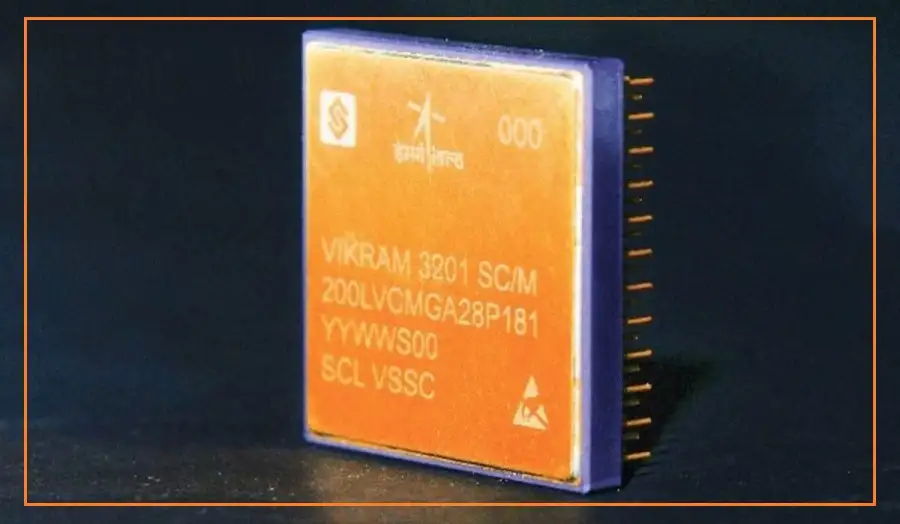India has made a big leap in the global tech world with the launch of Vikram 3201, the country’s first completely home-grown microprocessor.
Developed under the government’s ‘Make in India’ and ‘Atmanirbhar Bharat’ programs, this innovation shows India’s growing tech strength and its goal to become less dependent on foreign-made chips. Here are five interesting facts about Vikram 3201.
1. A Big Step Forward for India’s Space Program
Vikram 3201 is a 32-bit microprocessor, which is a major upgrade from the older 1601 model that had only 16-bit computing power.
This means it can handle more data at once, making it faster and more efficient. Designed by ISRO, the chip is made for space missions, which means it’s strong and built to handle tough conditions in space.
2. Works Well in Extreme Temperatures
One of the standout features of Vikram 3201 is its ability to work in very hot or very cold environments. It can function smoothly in temperatures ranging from -55°C to 125°C.
This is especially important for use in satellites and space vehicles where conditions can be extreme.
3. Made for Critical Systems
The processor supports the Ada programming language, which is trusted worldwide for its high reliability.
Ada is often used in satellites, air traffic systems, and launch vehicles. This makes Vikram 3201 well-suited for important systems where failure is not an option.
4. A Win for ‘Make in India’ and Global Standards
By creating this space-grade chip in India, the country has shown it can make microprocessors that meet international standards.
This reduces India’s need to import chips from countries like China or Taiwan, and also opens doors to making chips locally for other uses like cars, home appliances, and electronics.
5. Big Impact on Jobs and Economy
The Indian government is investing heavily in the semiconductor industry, with $18 billion already planned for 10 chip-making factories.
Companies like Tata Electronics, HCL, and Foxconn are part of this effort. By 2026, the chip sector could create over 300,000 jobs, helping India become a strong competitor in the $100 billion global chip market by 2030.
























